Resources
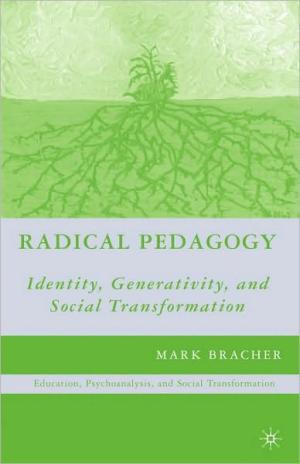
Radical Pedagogy argues that longstanding pedagogical aims and practices are ineffective in promoting learning and social change and proposes a new strategy for achieving these ends. Drawing on recent research in psychoanalysis, social psychology, and cognitive science, Bracher argues that the most effective way to solve social problems such as violence, prejudice, and substance abuse on a mass scale, as well as impediments to learning and personal well being, is through a pedagogy that addresses their common root cause: identity vulnerability.To this end, Bracher formulates psychoanalytically based practices to develop more resilient, secure, and prosocial identities for both teachers and students. (From the Publisher)
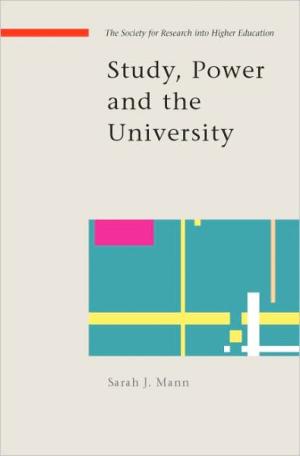
This book highlights the effects of power within the higher educational process, and argues that in order to understand the student experience we have to take seriously the institution as a context for learning. It considers key questions such as: • Why is the student experience of higher education sometimes negative or restricted? • How does power operate within the institution? • What are the forces that limit or enable student agency? • How can institutions of higher education create conditions which best support more enabling forces? Higher Education has its own particular culture, social relations and practices, governed by social and discursive norms. It is always implicated in relations of power through its function in society and its effects on individuals. This book considers how, for the student, these effects can be enabling and engaging, or limiting and diminishing. In exploring the effects of the institutionalization of learning and the workings of power implicated within this, it sets out to add to more cognitive and pedagogic ways of understanding student experience in higher education. Study, Power and the University provides key reading for educational researchers and developers, academics and higher education managers. Sarah J. Mann is Senior Lecturer in the Learning and Teaching Centre at the University of Glasgow. She is head of the Academic Development Unit and is responsible for the MEd in Academic Practice. (From the Publisher)
This paper explores the concept and practice of "embodied pedagogy" as an alternative to the Cartesian approach to knowledge that is tacitly embedded in traditional modes of teaching and learning about religion. My analysis highlights a class I co-teach that combines the study of Aikido (a Japanese martial art) with seminar-style discussions of texts that explore issues pertaining to embodiment in the context of diverse spiritual traditions. The physicality of Aikido training makes it an interesting "case study" of embodied pedagogy and the lessons it offers both teachers and students about the academic study of religion. Ultimately, the questions and insights this class generates illustrate how post-Cartesian pedagogies can expose, challenge, and correct epistemological assumptions that contribute to one-dimensional views of religion and that fail to address our students as whole persons. A final part of the paper considers other possible venues for embodying teaching and learning in the academic study of religion.
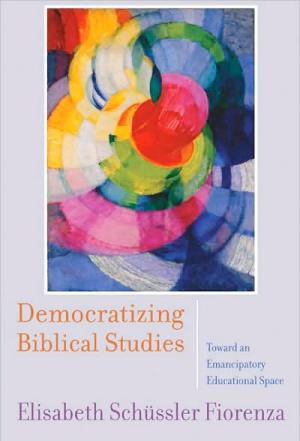
In this book, Elisabeth Schüssler Fiorenza continues her exploration of a radical democratic ethos in graduate biblical education. She argues that it is necessary to reframe the field of biblical studies and replace the competitive teaching models prevalent in graduate programs with an emancipatory, radical democratic pedagogical model that fosters collaboration, participation, and critical engagement. To achieve constructive engagement with the differences of social location and diversity of perspectives that exist both in the Bible and in our contexts, we must become aware of the pitfalls of one-dimensional thinking that seeks to use the Bible to find definite answers and to exclude different understandings. Schüssler Fiorenza addresses such questions as, What are the educational practices and procedures that are advocated by traditional educational models and how can they be changed? What kind of educational and communicative practices do biblical studies need to develop in order to fashion an emancipatory democratizing rhetorical space and a forum of many voices? To envision, articulate, debate, and practice a radical democratic ethos of biblical studies, she identifies emerging didactic models that can foster such a radical democratic style of learning. (From the Publisher)
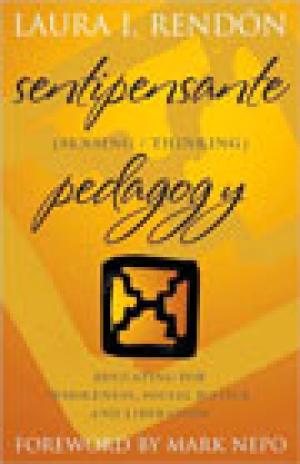
* An inspirational and holistic approach to teaching by a renowned Latina scholar * Defines seven steps to unlocking the potential of teachers and their students * Deeply informed by the author's educational journey as a minority woman from a background of rural poverty Laura Rendon is a scholar of national stature, known for her research on students of color and first-generation college students, and on the factors that promote and impede student success. The motivation for the quest that Laura Rendon shares in this book was the realization that she, along with many educators, had lost sight of the deeper, relationship-centered essence of education, and lost touch with the fine balance between educating for academics and educating for life. Her purpose is to reconnect readers with the original impulse that led them to become educators; and to help them rediscover, with her, their passion for teaching and learning in the service of others and for the well being of our society. She offers a transformative vision of education that emphasizes the harmonic, complementary relationship between the sentir of intuition and the inner life, and the pensar of intellectualism and the pursuit of scholarship; between teaching and learning; formal knowledge and wisdom; and between Western and non-Western ways of knowing. In the process she develops a pedagogy that encompasses wholeness, multiculturalism, and contemplative practice, that helps students transcend limiting views about themselves; fosters high expectations, and helps students to become social change agents. She invites the reader to share her journey in developingsentipensante pedagogy, and to challenge seven entrenched agreements about education that act against wholeness and the appreciation of truth in all forms. She offers examples of her own teaching and of the classroom practices of faculty she encountered along the way; as well as guidance on the challenges, rewards and responsibilities that anyone embarking on creating a new vision of teaching and learning should attend to. Though based on the author's life work in higher education, her insights and approach apply equally to all teaching and learning contexts. (From the Publisher)
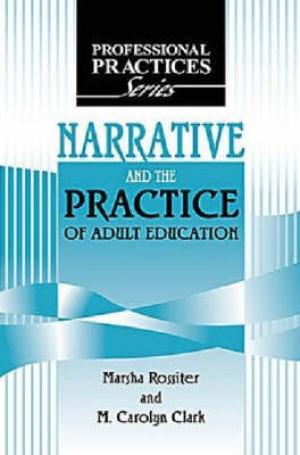
Within at least the past twenty years, there has been a dramatic "narrative turn" in the humanities and social sciences which finds its source in the understanding of narrative as the primary structure of human meaning making. Researchers and practitioners in psychology, adult development, and education have given increasing attention to the power and pedagogical effectiveness of narrative. The purpose of this book is to apply these insights to our understanding of adults as learners. We know that the telling of the personal experience narrative is a powerful avenue to self-understanding, transformative learning, and personal growth. We explore these and other ways in which narrative can inform the practice of adult education, as well as how we can understand learning as a narrative process. (From the Publisher)
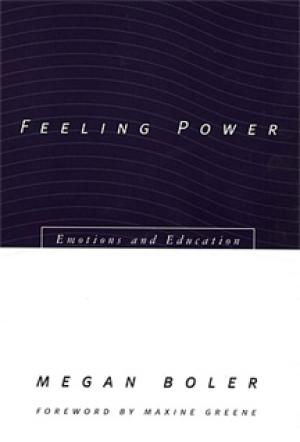
Megan Boler combines cultural history with ethical and multicultural analyses to explore how emotions have been disciplined, suppressed or ignored at all levels of education and in educational theory. Feeling Power begins by charting the philosophies and practices developed over the last century to control social conflicts arising from gender, class and race. The book traces the development of progressive pedagogies from civil rights and women's liberation movements to the author's recent studies of "emotional intelligence" and "emotional literacy". She concludes by outlining a "pedagogy of discomfort" that examines empathy, fear and anger to negotiate ethics and difference. Drawing on the formulation of emotion as knowledge within feminist, psychobiological and poststructuralist theories, Boler develops a unique theory of emotion from contemporary educational discourses. (From the Publisher)
Secularization, the idea that religion would gradually diminish over time, was once widely assumed to be true by scholars of religion, but the unexpected resurgence of religious traditions has called it into question. Related debates on the distinction between religion and the secular have destabilized religious studies further. What does the crisis of secularization and secularism mean for the religious studies classroom? This essay proposes a model of religious criticism in the wake of secularism. No longer simply claiming a "view from nowhere," students and instructors can (by observing standards of evidence, reason, and self-disclosure) combine criticism with learning. Drawn from aesthetic and ethical traditions of criticism, religious criticism can be practiced by "teaching the conflicts" and through the pedagogical models of Freire and hooks.
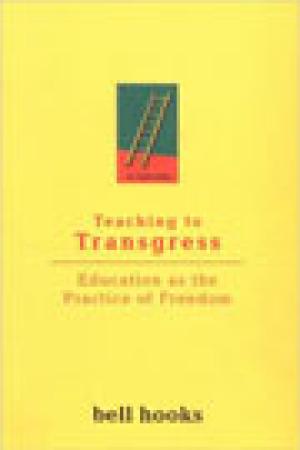
In this book, bell hooks, one of America's leading black intellectuals, shares her philosophy of the classroom, offering ideas about teaching that fundamentally rethink democratic participation. Hooks advocates the process of teaching students to think critically and raises many concerns central to the field of critical pedagogy, linking them to feminist thought. In the process, these essays face squarely the problems of teachers who do not want to teach, of students who do not want to learn, of racism and sexism in the classroom, and of the gift of freedom that is, for hooks, the teacher's most important goal. (From the Publisher)
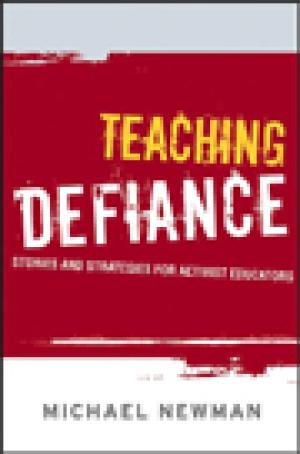
This book is for activist adult educators who want to help people make up their own minds and take control of their own lives. At its heart this book is about choice. It examines how activist educators can help people understand that they do have options and then help those people learn how to make effective choices. It is important as a counter to the increasingly formulaic writing in the fields of organizational learning, HRD and adult education. The author attempts to break free of these constraints and return to what actually happens in the encounter between educator and learner. (From the Publisher)